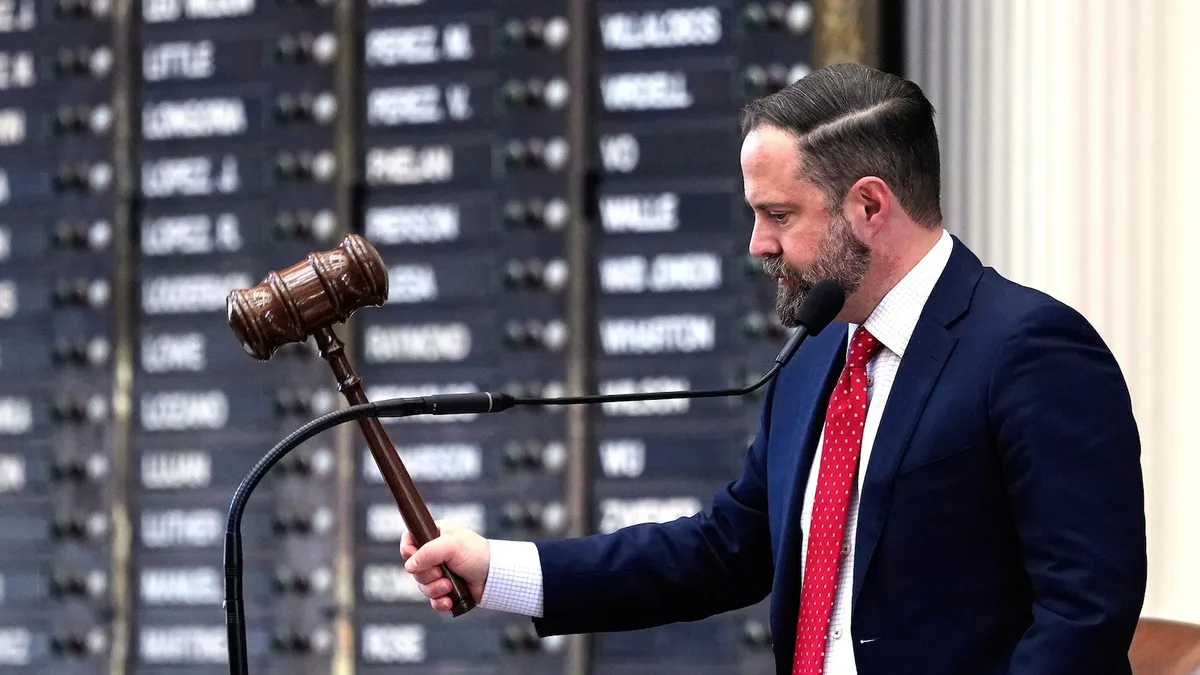
In a significant political move, the Texas House of Representatives voted on Wednesday evening to approve a congressional map that is expected to favor the Republican Party. This newly passed map has the potential to flip five districts from Democratic to Republican by consolidating Democratic seats in major urban areas such as Houston, Austin, and the Dallas-Fort Worth region. Additionally, it aims to make two districts in the Rio Grande Valley, currently held by Democrats, more competitive, thereby reshaping the political landscape ahead of the 2024 elections.
The map specifically targets districts currently represented by prominent Democratic figures, including Reps. Al Green, Marc Veasey, Julie Johnson, Greg Casar, and Lloyd Doggett. Critics argue that this move is a blatant act of gerrymandering aimed at increasing the number of GOP congressional seats in Texas. The vote comes in the wake of strong opposition from state Democrats, who have condemned the mid-decade redistricting process as undemocratic.
While the new map does not seem to significantly weaken any existing Republican-held seats, political experts suggest that its success will largely depend on the Hispanic support for Republicans in the upcoming 2024 midterms. The proposal has undergone some minor adjustments since its initial introduction in July, and it is expected to pass the Texas Senate shortly, ultimately landing on Governor Greg Abbott's desk for his signature.
In response to the vote, Democrats have indicated plans to challenge the new map in court. They are also actively speaking out on the floor of the Texas House to build a “legal case” against this redistricting effort. During the lengthy floor session prior to the final vote, House Democrats attempted to stall the deliberations by proposing various amendments, including one from House Democratic Caucus Chair Rep. Gene Wu to postpone considerations until the release of the Jeffrey Epstein files. However, this amendment was dismissed as irrelevant to the matter at hand.
Democratic representatives expressed strong opposition to the Republican-led redistricting, accusing them of operating under the influence of former President Donald Trump. “People like Donald Trump, people like the Republican Party of Texas, when they can't win, they cheat,” said Rep. Wu. Fellow Democratic Rep. Joe Moody added that the new maps would exacerbate struggles for communities of color, warning that “this is where division becomes dictatorship.”
During the intense debate, GOP Rep. Todd Hunter, the bill's author, defended the redistricting process, pointing out that Democrats had previously left the state to prevent a quorum. “You own the walkout… but don't come into this body and say we didn't include you,” Hunter asserted, highlighting the contentious atmosphere surrounding the special session.
The special session was initially delayed when Democrats left the state, despite threats of arrest from Abbott and other Republican leaders. However, some Democrats returned to the statehouse, allowing the legislature to reach a quorum. Ultimately, all 88 House Republicans voted in favor of the bill, while 52 of the 62 Democrats opposed it. A few House Democrats opted to stay overnight in solidarity with Rep. Nicole Collier, who refused to sign a “permission slip” to leave the Capitol under law enforcement escort.
The passage of this congressional map has drawn national attention, with California's Democratic Governor Gavin Newsom criticizing Abbott, stating he has become one of Trump's “most loyal lapdogs.” Newsom indicated plans to push for redistricting in California as a response to Texas's actions. Similarly, New York Governor Kathy Hochul expressed support for redrawing the state’s congressional maps, indicating that the political battle over redistricting is far from over.
As the situation unfolds, the implications of Texas’s new congressional map will be closely monitored, particularly as both parties prepare for the high-stakes 2024 elections.